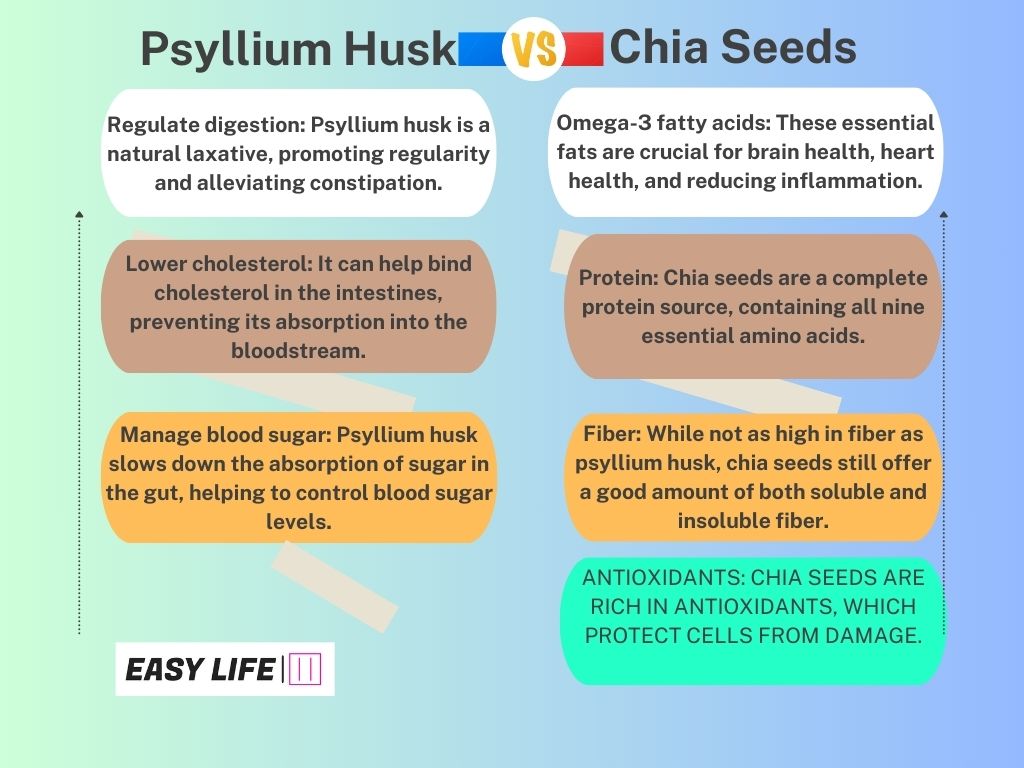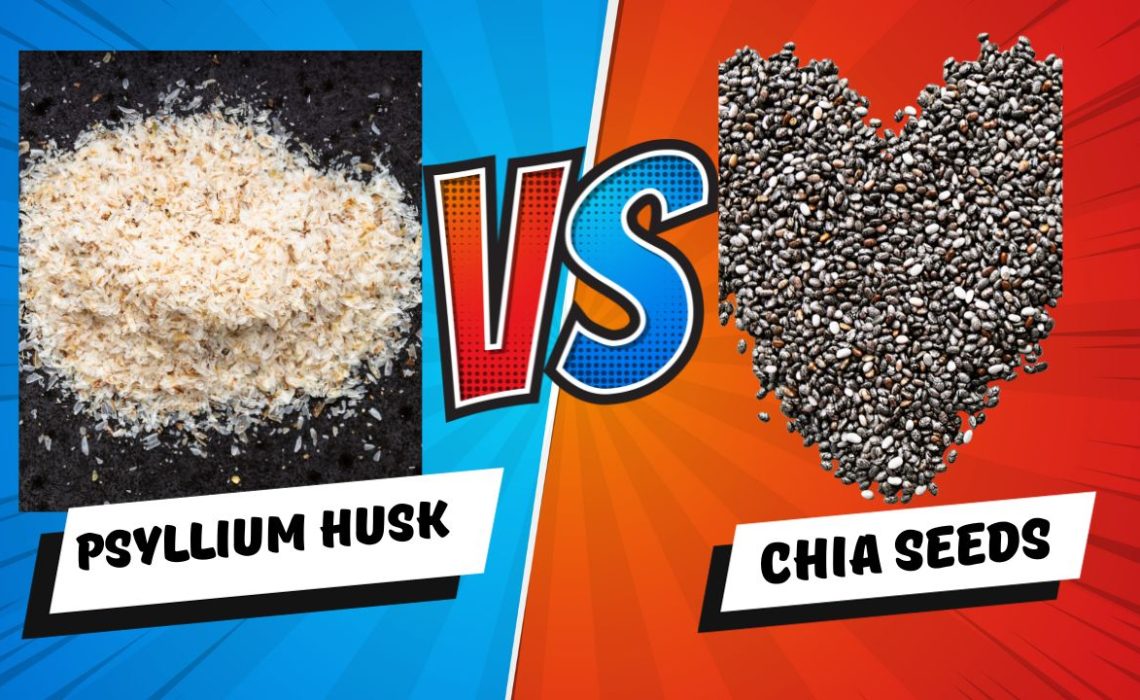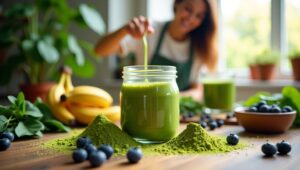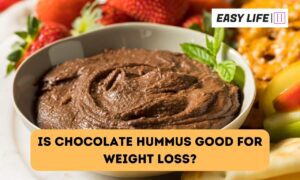Psyllium Husk vs Chia Seeds: Both psyllium husk and chia seeds are tiny nutritional powerhouses that have earned their place in the superfood spotlight. But when it comes to choosing between the two, which one reigns supreme? Let’s delve into their unique properties and see which one might be the better fit for you.
Table of Contents
TogglePsyllium Husk vs Chia Seeds

-
Psyllium Husk: The Fiber King
Psyllium husk is the outer shell of the Plantago psyllium plant’s seeds. It’s best known for its exceptional fiber content, particularly soluble fiber, which attracts water and forms a gel-like substance in your gut. This gel helps:
- Regulate digestion: Psyllium husk is a natural laxative, promoting regularity and alleviating constipation.
- Lower cholesterol: It can help bind cholesterol in the intestines, preventing its absorption into the bloodstream.
- Manage blood sugar: Psyllium husk slows down the absorption of sugar in the gut, helping to control blood sugar levels.
Psyllium husk is relatively bland in taste and odor, making it easy to mix into water, juice, or smoothies. It can also be sprinkled on cereal or yogurt. However, it’s important to drink plenty of water with psyllium husk to avoid blockages.
-
Chia Seeds: The Omega-3 All-Star
Chia seeds are tiny black or white seeds from the Salvia hispanica plant, a relative of mint. They’re packed with a variety of nutrients, including:
- Omega-3 fatty acids: These essential fats are crucial for brain health, heart health, and reducing inflammation.
- Protein: Chia seeds are a complete protein source, containing all nine essential amino acids.
- Fiber: While not as high in fiber as psyllium husk, chia seeds still offer a good amount of both soluble and insoluble fiber.
- Antioxidants: Chia seeds are rich in antioxidants, which protect cells from damage.
Chia seeds have a nutty flavor and a slightly crunchy texture. They can be soaked in water or milk to form a gel-like pudding, sprinkled on cereal or yogurt, or added to baked goods.
Chart Of Psyllium Husk vs Chia Seeds
| Feature | Psyllium Husk | Chia Seeds |
|---|---|---|
| Fiber | 95% soluble fiber | Rich in omega-3 fatty acids |
| Digestive Health | Relieves constipation, Supports gut health | |
| Heart Health | Lowers cholesterol | Boosts heart health |
| Energy | Provides sustained energy | |
| Brain Health | Improves brain function | |
| Antioxidants | Antioxidant powerhouse |
The Verdict: It Depends
Both psyllium husk and chia seeds offer unique health benefits, making it difficult to declare a clear winner. The best choice for you depends on your individual needs and goals:
-
Choose psyllium husk if:
- You’re struggling with constipation or irregular bowel movements.
- You’re looking to manage your cholesterol or blood sugar levels.
- You need a boost of soluble fiber.
-
Choose chia seeds if:
- You want to increase your intake of omega-3 fatty acids.
- You’re looking for a plant-based source of protein.
- You enjoy the nutty flavor and versatility of chia seeds.
Ultimately, the best way to reap the benefits of both is to include them both in your diet! Try adding psyllium husk to your morning smoothie and chia seeds to your afternoon snack. You can also experiment with different recipes to find ways to incorporate them into your meals.
Remember, it’s always a good idea to talk to your doctor before adding any new supplements or superfoods to your diet, especially if you have any underlying health conditions.
I hope this blog has helped you to understand the differences between psyllium husk and chia seeds. So, which one will you choose?
Additional Tips: Psyllium Husk vs Chia Seeds
- When buying psyllium husk, look for organic, whole psyllium husk powder or capsules. Avoid flavored varieties, as they may contain added sugar.
- Chia seeds can be stored in an airtight container in a cool, dark place for up to two years.
- If you’re new to chia seeds, start with a small amount and gradually increase your intake to avoid digestive upset.
Conclusion:
Summing Up the Psyllium Husk vs Chia Seeds Debate
As we reach the culmination of this exploration into Psyllium Husk and Chia Seeds, it’s imperative to synthesize the key takeaways. This section distills the essence of our discussion, highlighting the unique attributes, benefits, and considerations associated with each superfood. By revisiting the core aspects of the debate, readers gain a clear understanding of how Psyllium Husk and Chia Seeds can contribute to their overall health and wellness.
Personalized Choices for Optimal Health
In the quest for optimal health, personalization is paramount. This subsection encourages readers to reflect on their own health goals, lifestyle, and dietary preferences. Acknowledging that there is no one-size-fits-all answer, we empower individuals to make informed, personalized choices. Whether it’s incorporating Psyllium Husk, Chia Seeds, or a combination of both into their daily routine, the emphasis is on aligning dietary decisions with individual health aspirations.









